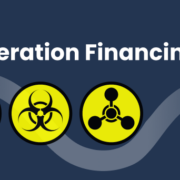UK Bribery Act
Course Description
The UK Bribery Act has been described as groundbreaking in scope and reach, and as one of the world’s toughest and most comprehensive pieces of anti-bribery legislation.
This course explains the context and substance of the UK Bribery Act and key strategies for managing risks.
It explains what bribery is and supplies an overview of global trends in corruption.
The course then breaks down information about the international reach of the Act. It identifies the four bribery offences recognised by it – including the so-called ‘corporate offence’ under which organisations could be held accountable – and outlines who is at risk and what red flags to look out for.
The course finally addresses ways to manage risks, taking into account the UK Ministry of Justice’s six guidelines for adequate procedures, as well as issues such as business expenditures and facilitation payments.
Who is this training for?
This training applies if:
- your organisation was incorporated or formed in the UK
- your organisation carries on part of its business in the UK, regardless of its place of incorporation
- any act or omission forming part of a bribery offence occurs in the UK
- your organisation provides services to another organisation in the UK – for example, it acts as an agent of the UK organisation
- you are a UK citizen or resident in the UK (even if the bribery act is committed outside of the UK), or as a senior officer of the body corporate, you consented or connived to the commission of an offence by the body corporate.
Course Outline
- Module 1: International bribery and corruption
- Module 2: Offences under the UK Bribery Act
- Module 3: Managing risks under the UK Bribery Act






